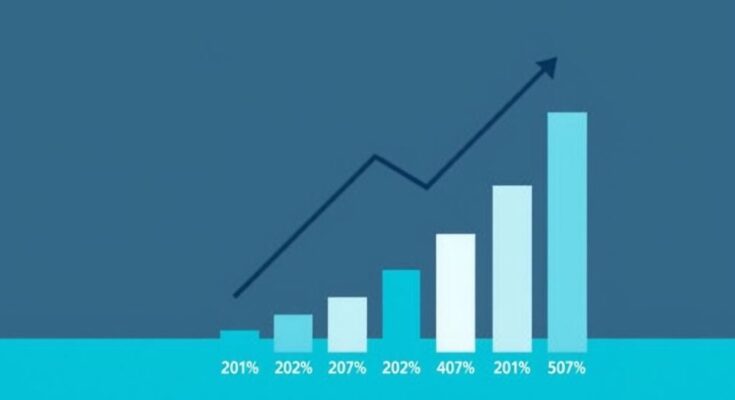Egypt’s annual consumer inflation rate dropped to 12.5% in February from 23.2% in January, marking a recovery from significant economic challenges. Analyst insights suggest that the decline is influenced by last year’s extreme inflation figures. The economy benefits from a recent currency devaluation and substantial international financial support.
In February, Egypt’s annual consumer inflation rate significantly decreased to 12.5%, signaling a recovery from its most severe economic crisis. This reduction follows a continued decline in inflation over several months; however, analysts note that the decrease from January’s rate of 23.2% largely stems from a base effect rather than absolute changes in price levels.
Economist and capital market expert Wael el-Nahas stated that with inflation previously peaking at 36%, the current rate appears lower due to comparisons with extreme price increases from the previous year. Additionally, the monthly consumer inflation rate for February was reported at 1.4%, slightly down from January’s 1.6% rate.
The Egyptian economy, which heavily relies on imports, faced a crisis last year caused by a foreign currency shortage, resulting in daily increases of consumer goods prices in urban areas. Following a currency devaluation in March 2024, the country appears to be on the path to recovery, aided by more than $50 billion in loans and investments from entities such as the World Bank and the International Monetary Fund (IMF).
Since February 2022, the Egyptian pound has depreciated over 60%, coinciding with inflation peaking at approximated 40% in August 2023. The government has initiated various reforms, including three fuel price hikes, in line with an agreement with the IMF that raised its support package from $3 billion to $8 billion. The IMF is anticipated to approve a $1.2 billion tranche during its program review later today, with discussions of an upcoming loan agreement reportedly exceeding $1 billion.
In conclusion, Egypt’s inflation rate has dropped significantly in February, reflecting an ongoing recovery from an economic crisis bolstered by international financial support. The analysis suggests that the improvement is partly due to the base effect of previous extreme inflation rates. Continued reforms and imminent financial assistance from the IMF are expected to further impact the economy positively.
Original Source: newscentral.africa




